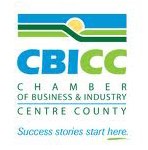This classic gem directed by Frank Capra is one of my favorite movies and a sure watch every holiday season. It’s a story of an angel working to get his wings, and his task is to help a compassionate but despairingly frustrated busi- nessman by showing what life would have been like if he had never existed.
George Bailey is a banker in Bedford Falls. His father started and ran the local savings and loan with the help of his absent-minded uncle, Bill Bailey. The scene that always sticks in my mind is the run on the bank after Uncle Billy lost the deposits and Mr. Potter found out the bank’s reserves were light. Upon spread of the news the bank may fail, the town’s people crowded around the bank lobby waiting to get their money. The first customer to the booth demands, “I want my $427!” George explains that they do not have it all right at the moment and asks what he needs to get by on for now? The customer again says, “I want my $427!” George then says, “Listen, don’t you see, some of your money is in Mary’s house, some in Tom’s house, and some in John’s business?” As an Investor Coach and financial strategist, I see this movie as an opportunity to coach people on the rules of preferred debt and the importance of financial literacy. For those pay- ing close attention, George was teaching the viewers one of the most amazing financial rules we can apply — arbitrage!
A bank’s greatest asset is its debt. A person walks into a bank and buys a CD for $100,000 earning 3%, the next person in line asks for a home loan that costs 5%. We are fortunate to have a society with order and rights of ownership to afford this practice; unfortunately, the lack of financial clarity can create huge wealth transfers that could be avoided. Most folks are partnering with Uncle Sam when funding their retirement plans by deferring taxes for a deduction. At the same time, they are alienating Uncle Sam by eliminating mortgage deductions as fast as they can; this is counterproductive. Does equity in your home have a rate of return? No. If today’s dollars are worth more now than they ever will, why use them to pay off future debt when they will be worth less? Let’s say I had the following investment for your consideration. How many of you would be interested if:
“Listen, don’t you see, some of your money is in Mary’s house, some in Tom’s house, and some in John’s business?”
• You can determine the amount of your monthly contribution and the length of time that contributions will continue.
• You can pay more than the minimum monthly contribution, but not less.
• If you try to pay less, the financial institution handling the investment keeps all of the previous contributions.
• The money invested is not liquid; it could take many months to put your hands on it in an emergency.
• The money invested is not safe from loss or principal.
• The contributions that are deposited earn a zero-percent rate of return.
• Your income-tax liability increases with each new contribution.
Did you figure out that I was describing the common mortgage? My primary goal as an Investor Coach is to help clients pay off their homes and plan for retirement income. Yes, your home is paid off when you hold the deed; however, you could consider it paid off if you had the money to pen a check in a liquid side fund. Our current tax structure forces fiscally responsible people to look for retirement-planning solutions that may seem contrarian, but with proper coaching, they are in fact quite conservative. If what you thought to be true turned out not to be, when would you want to know?




 Clarity Coaching Tips
Clarity Coaching Tips Common Sense Videos
Common Sense Videos It’s Your Money
It’s Your Money
